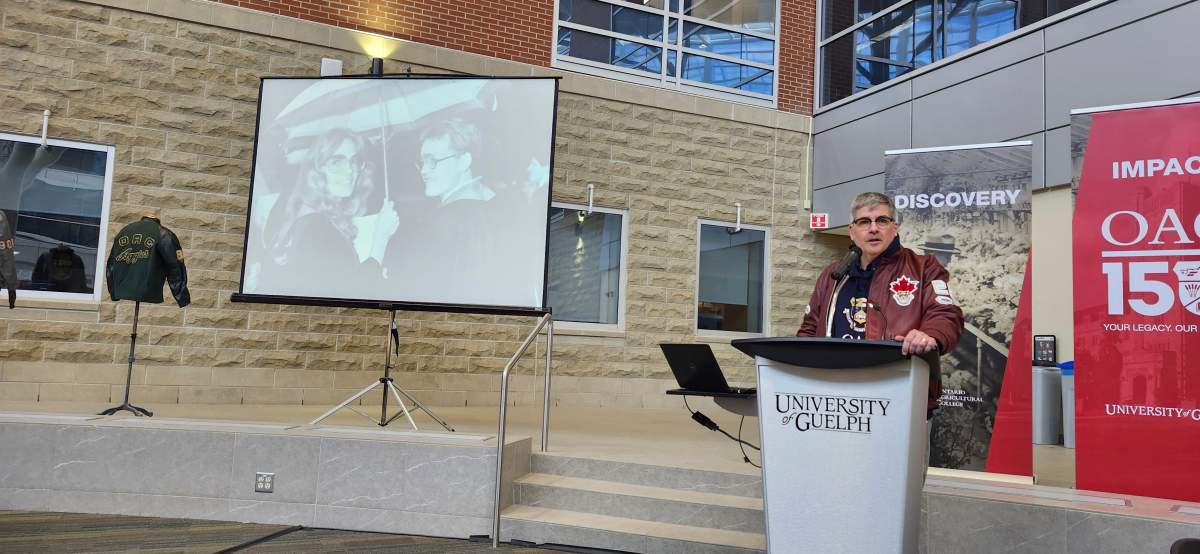The Ontario Agricultural College has had a lot to celebrate over the last 150 years.

An ice cream social served as the kick-off event inside the atrium of the Waasamowin Summerlee Science Complex at the University of Guelph on Wednesday.
Project coordinator Jordan Terpstra said the ice cream was sourced locally by Heart of Stone.
“It is inspired by the Stone family farm, in which the University of Guelph resides on, and the family sold the land 150 years ago,” Terpstra said.
Students and faculty lined up and had their choice of vanilla or chocolate and the sweet treat was exclusively made for the event, developed by the Guelph Food Innovation Centre on campus.
The ice cream featured vanilla, honey from the Honey Bee Research Centre on campus, and peaches, which Terpstra said is fresh stone fruit.
The kick-off was one of several events that’ll help commemorate the 150th anniversary.

Get daily National news
Throughout OAC’s existence, the things that stand out for Terpstra are the college’s people and how community-based it is.
He said there are a lot of different types of activities that bring together different people, with over 35,000 alumni around the world who are very connected to the OAC and love to give back.
One of three founding colleges at the post-secondary institution, the OAC has become a global leader in research and education in food, agriculture and the environment.
Throughout 2024, the OAC will be organizing a range of events, projects and initiatives to reflect and celebrate the achievements of its 150 years.
He said the big event will happen on June 22.
“We’re welcoming up to 800 alumni and friends for a celebration dinner, live music. We’re going to be having a large tent put up on Johnston Green beside the iconic Johnston Hall.”
Since opening its doors in May 1874, the college has influenced a lot of agriculture and global practices in Canada, including Yukon gold potatoes and omega 3 eggs.
As far as what the future holds for the OAC, both Terpstra and acting dean John Cranfield remain optimistic.
In the next 150 years, he said artificial intelligence could play a role in the college’s research development, including climate change and human food consumption.
Cranfield said the college’s vision will be about how to use science and technology to address a lot of the problems humanity faces.
“Whether that’s the impact of climate change, whether that’s the impact of animal disease and plant disease, whether that’s the changes in human condition and ensuring that we’ve got adequate supply for safe food, it’s about how we use science, technology, engineering and mathematics both from a pure science perspective,” Cranfield said.
“We can use those tools to help address problems like climate change and how agriculture and food can be part of the solution, not viewed as a cause of those problems.”
Among the additional events this year will include Deep Dish Dialogues in May and June, a hybrid event highlighting researchers and chefs and the connection to food.
Terpstra also said there will be on-campus history tours in August and the Royal Agricultural Winter Fair in November.








Comments